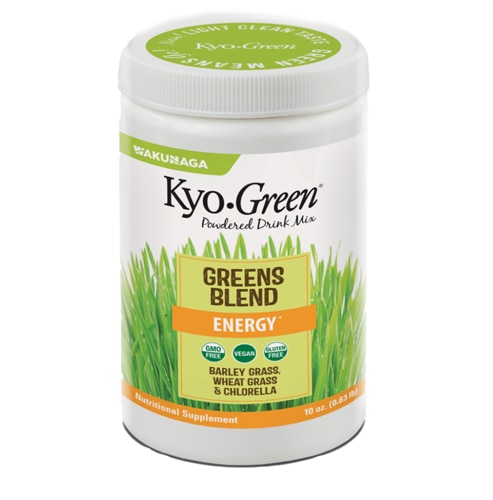It might seem hard to believe that ingesting bright green grass can actually be good for your health. No, we're not talking about snacking on clippings from your latest lawn mowing. Although it has a similar look to the stuff that grows in your backyard, wheatgrass is an edible plant that happens to be loaded with beneficial nutrients.
Vitamins found in wheatgrass include antioxidant C, E and beta carotene. It also contains the minerals calcium and magnesium, which help to promote an alkaline body pH when ingested regularly. It’s widely thought that the more alkaline your body pH is, the less systemic inflammation you’ll experience.*
There are also many enzymes found in wheat grass; one of the most notable being super oxide dismutase, also known as SOD, which doubles as an antioxidant. In addition, wheatgrass contains amino acids including serine, arginine, alanine, aspartic acid and glutamic acid.*
For further health-supporting potential, wheatgrass provides a hefty dose of chlorophyll. Plants need chlorophyll in order to perform photosynthesis -- the process by which they convert light into energy. Although more research is needed to determine the benefits of chlorphyll on human health, those who consume it often report feeling more energized and healthy overall.*
Ways to get wheatgrass
Freshly squeezed wheatgrass is available at many juice bars. If you can't find it fresh, try a ready-to-drink wheatgrass shot. Note that drinking pure wheatgrass juice can cause some people to feel slightly nauseated, so you might want to dilute it with another juice or water.
Another option is to mix wheatgrass powder into a glass of water first thing in the morning. For more flavor, stir the powder into your favorite juice, or blend it into a smoothie with coconut milk, bananas, a few drops of stevia and some mint leaves.
Don't like the taste of wheatgrass? Try it in vegan capsule form. Or, take a wheatgrass supplement that combines this superfood with other healthy ingredients, such as Kyo-Green, which delivers a nice blend of barley and wheatgrasses, brown rice, chlorella and kelp.
*These statements have not been evaluated by the FDA. These products are not intended to diagnose, treat, cure or prevent any disease.




